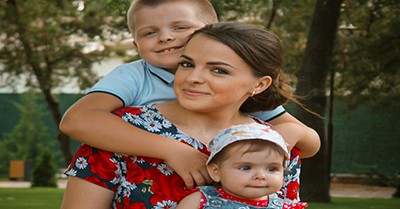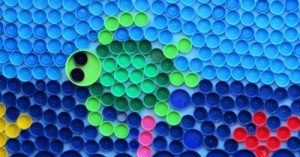In early childhood education, qualifications are often seen as the benchmark of quality. Diplomas, degrees, and certificates line the walls of centres, signaling compliance and professional achievement. Yet research consistently shows that what truly shapes a child’s well-being and learning is not the paper on the wall, but the warmth, trust, and attunement in the relationships they experience every day.
“The strongest predictor of a child’s well-being and learning is the quality of the relationship, not the certificate.”'
(Pianta, 2009; ACECQA, 2021; Bergin & Bergin, 2018)
Qualifications matter; they ensure educators meet regulatory standards. But children don’t measure quality by certificates. They measure it by whether they feel safe, loved, and understood. The everyday interactions between educator and child are what truly shape well-being and learning.
Why Relationships Matter More
- Attachment and Security: Children thrive when they feel safe and connected. Secure relationships with educators provide the emotional foundation for exploration, risk-taking, and learning. - A toddler who clings nervously at drop-off feels reassured when their educator kneels down, offers a gentle smile, and says, “I’m here. Let’s go find your favourite book together.”
- Emotional Regulation: Educators who can regulate their own emotions model resilience and calm, helping children develop these skills themselves. - When a preschooler becomes frustrated building a tower, an educator who calmly models deep breathing and says, “Let’s try again together,” teaches resilience more powerfully than any worksheet.
- Attunement and Responsiveness: Being present and noticing a child’s cues—whether joy, frustration, or curiosity—creates a sense of being seen and valued. - A child points excitedly at a butterfly. An educator who pauses the routine, crouches down, and marvels alongside them validates curiosity and turns a fleeting moment into a learning opportunity.
- Trust and Belonging: Strong relationships foster belonging, which is essential for well-being and identity formation. - A shy child who rarely speaks begins to share stories during circle time because their educator consistently listens without interruption, showing their voice matters.
What the Research Says
-
Pianta (2009): Found that the quality of teacher-child interactions is the most reliable predictor of academic and social outcomes.
-
ACECQA (2021): Australia’s national quality authority highlights relationships as central to quality practice, beyond compliance with frameworks.
-
Bergin & Bergin (2018): Demonstrated that relational pedagogy—educators who connect authentically—has a stronger impact on learning than instructional methods alone.
Practical Applications for Educators
- Morning Rituals: Greet each child by name, with eye contact and warmth, to build belonging.
- Emotion Coaching: Label feelings (“I see you’re frustrated”) and guide children through regulation strategies.
- Shared Joy: Celebrate small discoveries—a bug, a song, a drawing—to show children their interests matter.
- Consistent Presence: Be emotionally available, even during busy routines, so children feel secure.
- Reflective Practice: Ask yourself daily, “Did I connect with each child today?”
Implications for Practice
If relationships are the strongest predictor of child outcomes, then training and professional development must go beyond technical skills and compliance. Educators need support in:
-
Building emotional intelligence and reflective practice.
-
Developing trauma-informed approaches that prioritize safety and trust.
-
Learning relational pedagogy, where connection is the foundation of curriculum.
-
Receiving mentorship and coaching that model authentic, caring relationships.
Certificates are important—they ensure baseline knowledge and regulatory compliance. But they are not enough. To truly prepare educators, we must rehumanise training by embedding emotional labour, relational skills, and authentic voice into the heart of professional learning.
Children don’t measure quality by certificates. They measure it by whether they feel safe, loved, and understood. When educators bring empathy, presence, and attunement into their practice, they unlock the conditions for children to flourish.
Children don’t remember the certificate on the wall. They remember the educator who held their hand, listened to their story, and celebrated their curiosity. Relationships are the real curriculum—and the strongest predictor of lifelong learning and well-being.
Further Reading
Opinion: A Qualification Does Not Equal Competence
How Can Services Assess the Quality of an Educator Before Hiring?
Guiding Educators Toward Emotional Attunement







 As an Educator in Australia, your pay rate falls under the Children’s Services Award 2010. This award states the minimum amount that an employer can
As an Educator in Australia, your pay rate falls under the Children’s Services Award 2010. This award states the minimum amount that an employer can When working as a qualified Early Childhood Teacher (with a university degree) within a service, your rate of pay will come from the Educational Services
When working as a qualified Early Childhood Teacher (with a university degree) within a service, your rate of pay will come from the Educational Services When working as a Diploma Qualified Educator your pay rate is from the Children's Services Award 2010. This Award states your minimum rate of pay
When working as a Diploma Qualified Educator your pay rate is from the Children's Services Award 2010. This Award states your minimum rate of pay When working as a Cert 3 Qualified Educator, your pay rate is from the Children's Services Award 2010. This Award states your minimum rate of
When working as a Cert 3 Qualified Educator, your pay rate is from the Children's Services Award 2010. This Award states your minimum rate of Educational Leaders play a crucial role in their early childhood service by ensuring that the educational program aligns with best practices and supports the holistic
Educational Leaders play a crucial role in their early childhood service by ensuring that the educational program aligns with best practices and supports the holistic In early childhood education and care, ratios are more than a technicality—they are a frontline safeguard. Every child deserves responsive supervision, emotional connection, and developmental
In early childhood education and care, ratios are more than a technicality—they are a frontline safeguard. Every child deserves responsive supervision, emotional connection, and developmental With the new national child safety reforms kicking in on 1 September 2025, early childhood services like yours have a real opportunity to lead the
With the new national child safety reforms kicking in on 1 September 2025, early childhood services like yours have a real opportunity to lead the Here’s a comprehensive Mobile Phone and Smart Watch Policy tailored for early childhood education and care (ECEC) services in Australia, aligned with the latest 2025
Here’s a comprehensive Mobile Phone and Smart Watch Policy tailored for early childhood education and care (ECEC) services in Australia, aligned with the latest 2025 The Sea of Fish Challenge is a national initiative that invites children, educators, families, and communities to create and display fish artworks as a symbol
The Sea of Fish Challenge is a national initiative that invites children, educators, families, and communities to create and display fish artworks as a symbol Across the early childhood education and care sector, educators are sounding the alarm: current staffing ratios are insufficient to deliver safe, meaningful, and developmentally appropriate
Across the early childhood education and care sector, educators are sounding the alarm: current staffing ratios are insufficient to deliver safe, meaningful, and developmentally appropriate


